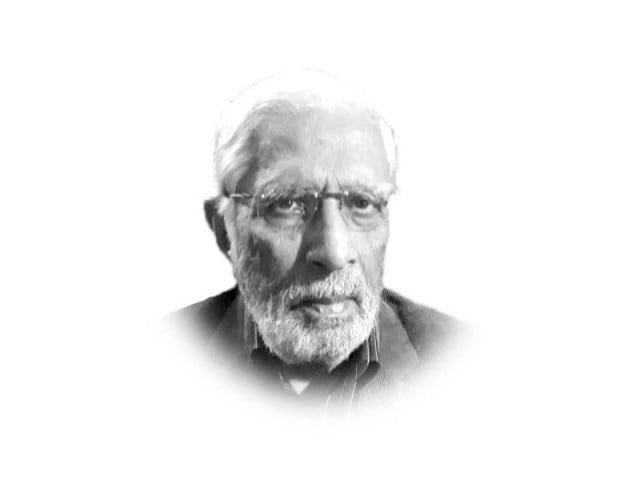Three more to go
The government now has three full years to put the country on the road to Riyasat-i-Madina

Benazir Bhutto and Nawaz Sharif survived no more than 20 or so months as Prime Ministers in their respective first terms while PM Imran Khan has already completed 24 months of his first term in office. More likely Khan would surpass the 30 months or so that Benazir and Nawaz survived in their respective second terms.
In fact, if one looked at the bigger picture, it seems more likely that the government would complete its term without any major accident because the same-page arrangement seems to be holding as the PM has already taken all those necessary U-turns during the first year of his term, to bring his election manifesto in line with the agenda of the other one on the same page.
The government is under pressure from the opposition, both in the National and the Punjab assemblies. Its coalition partners also frequently make difficult demands. And making things even more difficult for the government are two obstinate obstacles — Senate in the hands of the combined opposition and the Sindh province under the control of opposition PPP.
In order to neutralise these pressures, the government seeks help from the other one on the same page which the latter proffers in return for decision-making powers in policy matters. In other words, the government is made to serve as the proxy for the real decision-makers and naturally suffers from the politically unpopular side effects of some of the bad decisions taken in fact by the agenda setters.
The opposition, though formidable, finds itself in the twilight zone. On the one hand it wants to escape pressure from a hyperactive National Accountability Bureau (NAB), and on the other it seems willing to help agenda setters but only if the opposition was prepared to give up its defiance and agree to making mutually beneficial deals. Therein perhaps lies the explanation of how Nawaz Sharif reached London without an NRO from the PM.
It appears as if the opposition wants to conserve its energies until the next elections and also does not seem to want to disrupt the system itself — a system that had once enabled the PPP and the PML-N to join hands to get rid of the Article 58(2)b of the Constitution denying the president powers to dismiss a government; and then at another opportune moment, the two joined hands again to restore the 1973 constitution in its original form by getting the 18th amendment passed and in the process rendering military takeovers almost impossible. That is perhaps why the last two elected governments could complete their respective tenures but not before losing one prime minister each — the first one on the flimsy charge of contempt of court and the second one was ruled by the court, on even flimsier grounds, as not being Sadiq and Ameen!
The government now has three full years to put the country on the road to Riyasat-i-Madina. But it would hardly be able to move in this direction if it continued to play the proxy for the agenda setters. And things would be even more difficult on this front if the IMF were to ask the government, now that Covid-19 is visibly subsiding, to redouble its efforts to implement the three-year, $6b Extended Fund Facility program.
Pakistan has continued to remain all these years essentially an importing country and excessively dependent on dole because the economic model it has been working since is based on free market economy which draws its inspiration from Washington Consensus which actually promotes deregulation, privatisation and lowering of trade barriers. The decisions in a free-market economy are influenced by the pressures of competition, supply, and demand. In countries like Pakistan, which are not very strong in governance, this system without fail gives rise to mafias who — driven by the profit motive — hoard, blackmarket and smuggle creating artificial shortages leading to all round price increases. Meanwhile, the attempt to achieve the IMF-dictated macroeconomic stability leads to austerity which in turn ends up in stagflation. That is why all Pakistani governments since at least the 1990s have failed to achieve sustainable economic growth. And since the PTI government is also working the same economic model the results are unlikely to be any different.
Published in The Express Tribune, August 29th, 2020.
Like Opinion & Editorial on Facebook, follow @ETOpEd on Twitter to receive all updates on all our daily pieces.














COMMENTS
Comments are moderated and generally will be posted if they are on-topic and not abusive.
For more information, please see our Comments FAQ